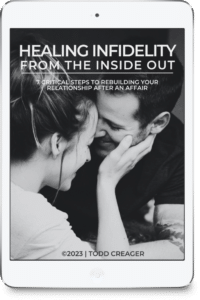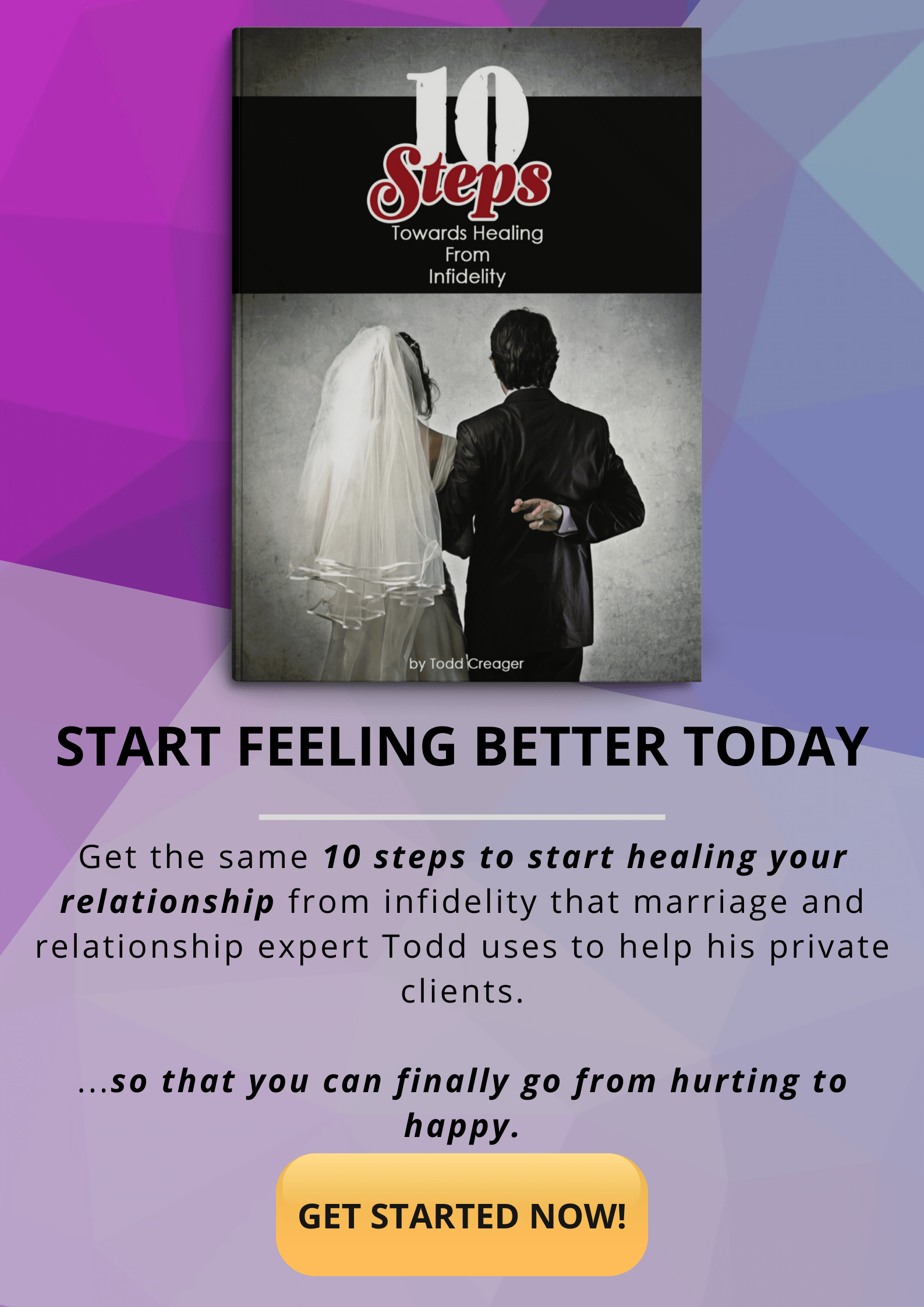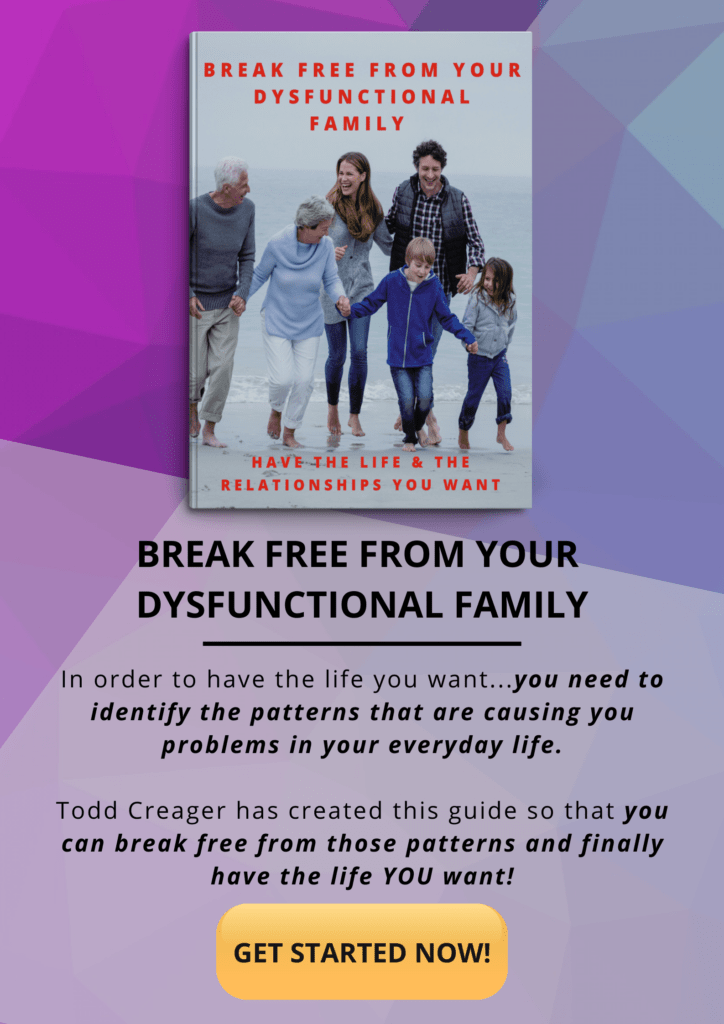When Two Worlds Collide: Rebuilding Your Identity After Betraying Your Partner
Getting caught after betraying your partner isn’t just a crisis for them—it fundamentally changes how you see yourself.
Those separate lives you’ve been living suddenly crash together, leaving you disoriented and wondering:
Who am I now?
The hard truth most people miss: Recovery isn’t just about stopping the cheating behaviors.
It requires becoming curious about all parts of yourself—even the parts that betrayed—and discovering new ways to meet your needs without secrecy or betrayal.
The Identity Earthquake After Discovery
When your infidelity is discovered, you experience what I call an identity earthquake.
For weeks, months, or maybe even years, you’ve maintained two separate lives—the committed partner everyone sees and the secret self hidden from view. The compartmentalization that made this possible suddenly collapses.
This is profoundly disorienting.
While cheating, you might not have noticed the growing identity crisis beneath the surface because you were too busy juggling these separate worlds.
But when discovery happens, the question hits you with full force:
Who am I now that I’ve betrayed my values and my partner?
I’ve worked with hundreds of people in this exact situation.
One client told me, “I always saw myself as a good husband and father. Now I don’t know who I am anymore.” Another said, “I never thought I’d be capable of this. I don’t recognize myself.”
This identity confusion is a natural response to having your compartmentalized worlds suddenly merge.
Who Am I Now That I’ve Betrayed My Values?
Unless you’re a total sociopath (and if you’re reading this with concern, you probably aren’t), you’ve betrayed something important to you.
Most of us value honesty, commitment, and integrity. When we cheat, we betray these core values.
So who are you now?
You are the person who can be interested and curious about all the parts of you. That’s who you are.
This means being curious about the part of you that betrayed your values and hurt your partner. It means being curious about the part that’s angry at yourself for what you did.
It might even include the part that would never want to cheat if that were the only part of you.
Why is this curiosity so important? Because when we ask “who am I now,” life is giving you an answer: you need to get to know yourself—all of yourself.
I remember working with a man who had betrayed his wife multiple times. When he first came to therapy, he wanted to disown the “bad part” of himself that had cheated.
But healing only began when he became curious about why that part existed and what needs it was trying to meet, however misguided its methods.
Can I Become Someone My Partner Can Trust Again?
This question connects directly to the first one.
If you’re becoming the person who’s curious about all parts of yourself—even the parts you’re ashamed of—then yes, you can become trustworthy again.
As you get interested in these different parts of you, you become more conscious. And with consciousness comes choice. New options become available that weren’t before.
Many people who betray are actually missing possible choices. For example, someone who grew up in a home where feelings had to go underground might never have learned how to be vulnerable with their partner. The choice to share feelings and get support wasn’t in their emotional repertoire.
As you become interested in even the wounded parts of yourself, you discover new ways to meet your needs without betrayal.
You find you have more choices in how to regulate yourself and meet your needs in ways that don’t violate your values or hurt others.
I worked with a woman who discovered her pattern of betrayal was connected to feeling invisible in her marriage.
She never learned how to express her needs directly. Through therapy, she developed the ability to communicate her needs, making the escape of affairs unnecessary.
Is Change Even Possible For Someone Like Me?
The answer is absolutely yes. We’re not changing the core of who you are. What we’re trying to do is help you discover the core of who you are.
Your infidelities came from different factors—sometimes factors you weren’t even conscious of. As you become more aware through this work, change becomes possible because we do things for reasons.
When we find other options and choices, those reasons fade away.
We don’t need secrets and betrayal when we have healthier ways to meet our needs.
I’ve guided numerous serial betrayers through this journey of self-discovery.
One man had cheated in every relationship since college. Through our work together, he realized his betrayal was linked to deep fears of being trapped—fears connected to childhood experiences of being controlled. As he found healthier ways to maintain his sense of autonomy, his need for secret escapes disappeared.
What Does Recovery Look Like For A Serial Betrayer?
Recovery isn’t just about not cheating anymore. That’s part of it, but there’s so much more.
When you’re recovering, you’re communicating more openly. You’re being vulnerable—sharing what you feel, need, and want. You’re less self-absorbed because you don’t need all those protections you used to have.
This makes you more available to your partner.
You become a better listener. You’re more interested in what they’re going through. There’s room for their needs because you’re not so caught up in your own secret world.
You also see the benefit of saying no to immediate gratifications so you can say yes to what you really want—a good, healthy committed relationship.
Recovery means living with more intention.
You’re actively creating a relationship you feel good about. You’re not just avoiding negative behaviors—you’re building something positive.
And you’re not doing what I call “micro-hiding.” You’re not hiding your feelings. You’re letting your partner know you.
I remember a client who described his recovery this way: “Before, I was always planning my next escape. Now, I’m planning our next adventure together. The energy I used to put into hiding, I now put into connecting.”
Do I Need Therapy, Support Groups, Or Both?
In my experience, therapy is almost a necessity. Maybe I’m underestimating—maybe it is a necessity.
Why? Because we all have defense mechanisms. Even with the best intentions, trying to do this work on your own is like performing surgery on yourself. You need someone skilled who can help you navigate this journey, develop curiosity about yourself, and understand more deeply what’s going on with you.
It’s very difficult—nearly impossible—to do this alone. You need a guide.
It’s like visiting a new country—having a tour guide helps. A therapist might not know your particular landscape, but they know the landscape of these dynamics.
They understand what might be behind certain choices and can help you appreciate the different parts of yourself while still challenging you to grow.
Support groups can also be valuable. They help you consolidate your intention and connect with others who have gone through similar experiences.
Some people benefit greatly from support groups. Others thrive without them. This is something you can explore based on what feels right for you.
I’ve seen some clients do best with both therapy and support groups.
The therapist provides that one-on-one focus, while the group offers community and perspective.
The Accelerated Journey To Your Core Self
Identity naturally changes over time. The crisis of infidelity discovery can actually accelerate this journey toward your core—who you really are, who you want to become.
I’ve witnessed this transformation countless times.
One client described it as “finally feeling whole instead of split in two.” Another said, “For the first time, I don’t have to pretend to be someone I’m not.”
This doesn’t happen overnight. It requires courage to face parts of yourself you’ve kept hidden—not just from others but from your own awareness.
It means accepting responsibility without drowning in shame. It means developing compassion for yourself while still holding yourself accountable.
Practical First Steps For Your Recovery Journey
If you’re beginning this process of rebuilding your identity after betraying your partner, here are some practical starting points:
→ Start practicing curiosity about all parts of yourself.
When you feel shame or the urge to disown the part that betrayed, gently redirect yourself toward curiosity.
What was this part trying to accomplish? What needs was it trying to meet?
→ Seek professional help.
Find a therapist experienced with infidelity recovery. This isn’t a luxury—it’s a necessity for navigating this complex emotional terrain.
→ Begin noticing “micro-hiding”.
Pay attention to the small ways you might still be hiding aspects of yourself—not just behaviors but feelings and thoughts too.
→ Practice new forms of vulnerability.
Start sharing your authentic feelings and needs, beginning with lower-risk topics and gradually building to more significant ones.
→ Be patient with the process.
Identity rebuilding takes time. There will be setbacks along the way, but each one offers new opportunities for insight and growth.
Discovery of infidelity represents a crisis point, but crisis also means opportunity.
This painful moment can become the catalyst for developing an identity that’s more integrated, authentic, and capable of true intimacy than before.
I’ve seen people transform their lives after betrayal—not by becoming someone new, but by finally becoming who they truly are.
The compartmentalized life is exhausting.
Integration brings not just healing but a profound sense of relief and freedom.
This journey isn’t easy, but it’s worth it.
The person you become—whole, integrated, conscious—is capable of connection and intimacy beyond what was possible before.
This article draws on my extensive experience working with couples recovering from infidelity.
While each person’s journey is unique, these patterns of identity reconstruction have proven consistent across the many cases I’ve guided through this process.
Go From Hurting to Happy Today...
When you click the button below, you’ll gain access to my exclusive Healing Infidelity From The Inside Out Guide.
It’s a powerful resource that will support you every step of the way, providing practical guidance and actionable steps toward finding peace within yourself.







Reader Interactions